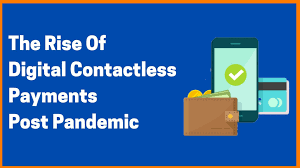AUTHOR : JAISMINE
DATE : 3/11/2023
The payment landscape[1] in India has undergone a remarkable transformation in recent years, driven by the digital revolution and the government’s push for cashless transactions. One significant development[2] that has gained prominence[3] in this evolving ecosystem is the White Label India Payment Gateway. This article will explore the concept of white label payment gateways, their significance, and how they are reshaping the payment[4] industry in India.
Payment Gateways: A Fundamental Concept
To comprehend the significance of white label payment gateways, it’s crucial to first understand[5] the basics of payment gateways themselves. A payment gateway is a technology service that securely connects various parties, including merchants, customers, banks, and credit card providers, facilitating electronic transactions.
It serves as a crucial component for e-commerce businesses by securely transferring financial data during online purchases.
The Role of Payment Gateways
Payment gateways serve as intermediaries between merchants and banks. They authorize, process, and complete transactions, enabling customers to make online payments while ensuring the security of their data.
The Evolution of Payment Gateways in India
The traditional payment scenario[1] in India was primarily dominated by cash transactions. However, with the advent of the digital era and the government’s efforts to promote digital payments[2], the landscape underwent a significant transformation[3].
Cash Dominance
Traditionally, cash transactions were the preferred mode of payment[4] in India, with a substantial portion of the population relying on physical currency[5] for their transactions.

Rise of Digital Payments
The digital transformation in India witnessed the rapid adoption of online payments. As more and more consumers and businesses embraced digital transactions, the need for secure, reliable payment portals became increasingly evident.

Understanding White Label Payment Gateways
Now, let’s delve into the core concept of this article – white label payment portals.
What are White Label Payment Gateways?
White label payment gateways are a specialized solution that allows businesses to offer payment processing services under their own brand. They are essentially a ‘white label’ solution, meaning they can be rebranded and customized to align with a specific business’s requirements.
Key Features
White label payment gateways come with a range of features that make them an attractive option for businesses:
Custom Branding: Businesses can maintain brand consistency by customizing the payment gateway to align with their brand image.
Multiple Payment Options: These gateways support various payment methods, making it convenient for customers.
Security Protocols: Data security is a top priority, ensuring that sensitive customer information is handled with the utmost care.
Integration Capabilities: White label portal scan seamlessly integrate with a business’s existing systems.
Analytics and Reporting: These portal sprovide valuable insights into transaction data and customer behavior.
Advantages of White Label Payment Gateways
Now that we’ve explored what white label payment portals are, let’s discuss the advantages they offer to businesses in India.
Streamlined Payment Process
One of the primary benefits of white-label payment portals is the enhanced customer experience they provide. These gateways offer a seamless and hassle-free payment process for customers, which, in turn, elevates their overall experience.
Enhanced Security
Data security is a paramount concern when it comes to online transactions. White label payment gateways prioritize data protection, ensuring that sensitive customer information is safeguarded and handled with the utmost care.

Increased Revenue
Businesses can generate additional revenue by offering payment gateway services to other merchants. This diversification of income streams can significantly impact a business’s bottom line.
Challenges and Considerations
While white-label payment portals offer numerous benefits, businesses should be aware of potential challenges and considerations associated with their adoption. It’s essential to weigh these factors before implementing a white-label solution.
Associated Costs
Implementing and maintaining a white-label payment gateway can involve costs, including customization, integration, and ongoing support.
In the realm of business, it is primary for companies to carefully evaluate the financial results that underlie their operations.
Competitive Landscape
The payment gateway industry in India is competitive, with several providers offering various solutions. Understanding the competitive landscape and choosing the right partner is crucial for success.
Ongoing Maintenance
After implementing a white label payment gateway, ongoing maintenance and updates are necessary to ensure the system remains secure and functional.
Conclusion
In a rapidly digitizing world, the White Label India Payment Gateway emerges as a powerful tool for businesses seeking to enhance their payment processes, maintain brand consistency, provide excellent customer experiences, and generate additional revenue. As the digital transformation continues, embracing white label payment portals becomes a strategic move for businesses looking to thrive in this dynamic environment.
FAQs
The primary objective of a payment gateway is to act as a safeguarded conduit
The primary purpose of a payment gateway is to facilitate secure and convenient online transactions between customers and businesses.
Can white-label payment gateways be customized?
Yes, white-label payment gateways can be fully customized to match a business’s branding and specific requirements.
How do white-label payment gateways contribute to data security?
White-label payment gateways implement robust security protocols to ensure that customer data remains protected and confidential.
Are there any limitations to using white-label payment gateways?
While white-label payment gateways offer numerous benefits, businesses need to consider the associated costs and ongoing maintenance.
How do white-label payment gateways impact a business’s bottom line?
By offering white-label payment gateway services to other businesses, a company can diversify its revenue streams and potentially increase its profits.





